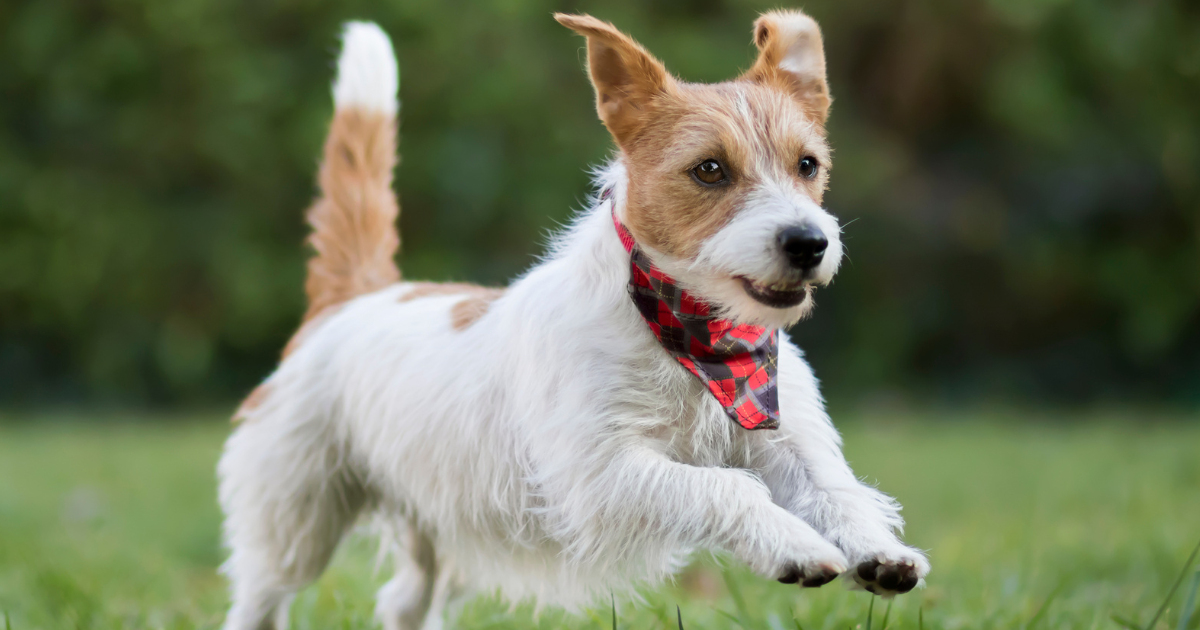The “English Pronunciation: General Rules and Tips (Part 1)” post talked about the importance of learners’ background when starting with English and how it can affect learning English pronunciation, especially in the beginning.
We mentioned homophones and homographs. Then we moved on to the sounds of the vowels A, O, U, E, and I (as in their names), giving different examples and exceptions if any.
Here we move on with some letter combinations that may look confusing at first glance.
Letter combinations (with A)
Many letter combinations, be it between vowels or vowels and consonants produce specific sounds, so it’s worth mentioning a few.
A + L (LL, LK, LT, etc.)
A before L or (LL, LK, and LT, etc.) is often pronounced as [ɔ], especially with one /two syllable words.
–ALL
- all [ɔl]
- in‧stall [ɪnˈstɔl]
- small [smɔl]
- base‧ball [ˈbeɪsˈbɔl]

I have a small dog.
BUT❗
- al‧low [əˈlaʊ]
- al‧ler‧gic [əˈlɜrʤɪk]
- chal‧lenge [ˈʧælənʤ]
- I am allergic to cats.
–ALK
- chalk [ʧɔk]
- talk [tɔk]
- stalk [stɔk]
- walk [wɔk]
- Let’s go for a walk in the park.
BUT❗ alkaline [ˈælkəˌlaɪn], etc.
-ALT
- salt [sɔlt]
- halt [hɔlt]
- al‧ter [ˈɔltər]
- malt [mɔlt]
- Can you pass me the salt, please?
BUT❗
- as‧phalt [ˈæˌsfɒ:lt]
- pen‧al‧ty [ˈpɛnəlti]
- loy‧al‧ty [ˈlɔɪəlti]
*Usually, words ending in -alty sound [əlti], and not [ɔlti]
- During science class, the students learned about the properties of asphalt and its role in constructing roads.
When a vowel follows -alor -all, you can expect a different sound.
- a‧lone [əˈloʊn]
- a‧like [əˈlaɪk]
- al‧le‧ga‧tion [ˌæləˈgeɪʃən]
- She prefers to read alone in a quiet corner of the library.
The vowels – AU
The vowel combination AU is usually (not always ❗) pronounced [ɔ] as in the following words:

autumn [ˈɔtəm]
- taught [tɔt]
- daughter [ˈdɔtər]
- because [bɪˈkɔz]
- author [ˈɔːθər]
- clause [klɔːz]
- laundry [ˈlɔndri]
- launch [lɔːnʧ]
- We need to do the laundry.
BUT ❗
- laugh [læf]
- aunt [ænt] or [ɑnt]
The letters – AW
More often than not, when we see words spelled with AW, we hear the sound [ɔː], especially in one-syllable words or when aw is followed by a consonant/semivowel.

hawk [hɔːk]
- draw [drɔː]
- saw [sɔː]
- awful [ˈɔːfəl]
- paw [pɔː]
- claw [klɔː]
- law [lɔː]
- The weather is awful today.
BUT ❗
- away [əˈweɪ]
- awake [əˈweɪk]
- award [əˈwɔrd]
- When he saw me, he ran away.
Usually, words that have any of the above combinations produce the schwa sound [ə (r)]. As always, there are exceptions.
Double E (ee)
Words that have double e (ee) in them are usually pronounced as [iː] (long sound ) as in:

bee [biː]
- between [bɪˈtwiːn]
- squeeze [skwiːz]
- needle [ˈniːdəl]
- The bookstore is located between the coffee shop and the library, making it a convenient spot for readers.
However, when double E (ee) is followed by the letter R, the pronunciation changes:
- deer [dɪ(ə)r]
- peer [pɪ(ə)r]
- steer [stɪ(ə)r]
- beer [bɪ(ə)r]
- The deer jumped over the fence and disappeared into the woods.
Double O (oo)
When a word is spelled with double oo, double oo is usually (not always ❗) pronounced [uː] (long u).

room [ruːm]
- school [skuːl]
- room [ruːm]
- shampoo [ʃæmˈpuː]
- proof [pruːf]
- fool [fuːl]
- root[ruːt]
- smooth [smuːð]
- The room was filled with colorful paintings and cozy furniture.
BUT ❗
- door [dɔr]
- floor [flɔr]
- blood [blʌd]
- flood [flʌd]
- The floor was covered in soft, fluffy rugs.
The letters -ar, -er, -ir, -ur, etc.
– AR
Maybe the -AR combination should have its own section because it has quite a few exceptions but let’s try to mention them all here. There are two ways (remember, there can always be exceptions) to pronounce the -ar combination:
- like [ɑ] as in star
- like [ə (r)] as in familiar
Usually, in one-syllable words or in closed-syllable words, -ar sounds like [ɑ] as in the words :

guitar [gɪˈtɑr]
- bar [bɑr]
- car [kɑr]
- mar‧ket [ˈmɑrkɪt]
- part‧ner [ˈpɑrtnər]
- The shiny red car sped down the road.
However, with many 2+ syllable words ending in -ar, the pronunciation changes to the schwa sound [ə (r)].
- modular [ˈmɒdjʊlə]
- familiar [fəˈmɪlɪə]
- similar [ˈsɪmɪlə]
- popular [ˈpɒpjʊlə]
- regular [ˈrɛɡjʊlə]
- These two books have similar covers.
– ER
Generally speaking, there are three ways to pronounce the -er letter combination (of course, there are exceptions):
- [ɪ] as in imperial [ɪmˈpɪriəl]
- [ɛ] as in heritage [ˈhɛrɪtɪʤ]
- [ə] as in tiger [ˈtaɪgər] (most often)
[ɪ]
- experience [ɪkˈspɪriəns]
- criterion [kraɪˈtɪriən]
- serious [ˈsɪriəs]
- bacteria [bækˈtɪriə]
- cereal [ˈsɪriəl]
- Her travel experience helped her understand different cultures.
[ɛ]
- heritage [ˈhɛrɪtɪʤ]
- therapy [ˈθɛrəpi]
- sheriff [ˈʃɛrɪf]
- verify[ˈvɛrəˌfaɪ]
- territo‧ry [ˈtɛrɪˌtɔri]
- ceremony [ˈsɛrəˌmoʊni]
Notice a pattern? It’s the first syllable!
- The graduation ceremony marked the end of their academic journey.
[ə]
- later [ˈleɪtər]
- explorer [ɪkˈsplɔrər]
- gardener [ˈgɑrdənər]
- over [ˈoʊvər]
- chapter [ˈʧæptər]
- number [ˈnʌmbər]
Notice a pattern? It’s at the end of the words!
- The final chapter of the novel reveals an unexpected twist in the plot.
– IR

virtual /ˈvəːtjʊəl/
[ə]
- stir [stəː]
- girl [ɡəːl]
- skirt [skəːt]
- firm [fəːm]
- shirt [ʃəːt]
- bird [bəːd]
- The girl played happily in the park.
BUT❗
- vampire [ˈvampʌɪə]
- inspiration [ˌɪnspəˈreɪʃən, ɪnspɪˈreɪʃ(ə)n]
- direction [dɪˈrɛkʃ(ə)n, dʌɪˈrɛkʃ(ə)n]
- miracle [ˈmɪrəkəl]
- pirate [ˈpʌɪrət]
- irresponsible [ɪrɪˈspɒnsɪb(ə)l]
- The pirate sailed the seas in search of treasure.
– OR
You will notice below that the -or combination is pronounced differently depending on where it is in the word. (Exceptions are always possible!)
- [ɔr] as in born [bɔrn]
- [ər] as in doctor [ˈdɑktər]
[ɔr]
- born [bɔrn]
- forest [ˈfɔrɪst]
- sport [spɔrt]
- short [ʃɔrt]
- order [ˈɔrdər]
- Alex was born in a small town, surrounded by a dense forest.
- majority [məˈʤɔrəti]
- portrait [ˈpɔrtrət]
- storage [ˈstɔrɪʤ]
- landlord [ˈlænˌdlɔrd]
- The landlord hung a beautiful portrait in the entryway of the apartment building.

color [ˈkʌlər]*
*The above is the American spelling of the word. In British English, it is spelled as “colour” but that doesn’t affect the pronunciation.
[ər]
- doctor [ˈdɑktər]
- visitor [ˈvɪzɪtər]
- calculator [ˈkælkjəˌleɪtər]
- inspector [ɪnˈspɛktər]
- password [ˈpæˌswəː(r)d]
- paperwork [ˈpeɪpərˌwəː(r)k]
- The inspector reviewed the paperwork thoroughly.
– UR
There are a number of ways to pronounce the combination -UR. Let’s have a look.
- [əː(r)] as in turn [təː(r)n] ( usually, closed syllable)
- [jʊ] as in to endure [ɪnˈdjʊ(r)]
[əː(r)]
- fur [fəː(r)]
- turn [təː(r)n]
- urban [ˈəː(r)b(ə)n]
- survive [səˈ(r)vʌɪv]
- turkey [ˈtəː(r)ki]
- The turkey made a quick turn in the yard.
[jʊ]
- durable [ˈdjʊrəbəl]
- secure [sɪˈkjʊr]
- purity [ˈpjʊrɪti]
- The durable, secure lock ensured his belongings were safe and protected.


